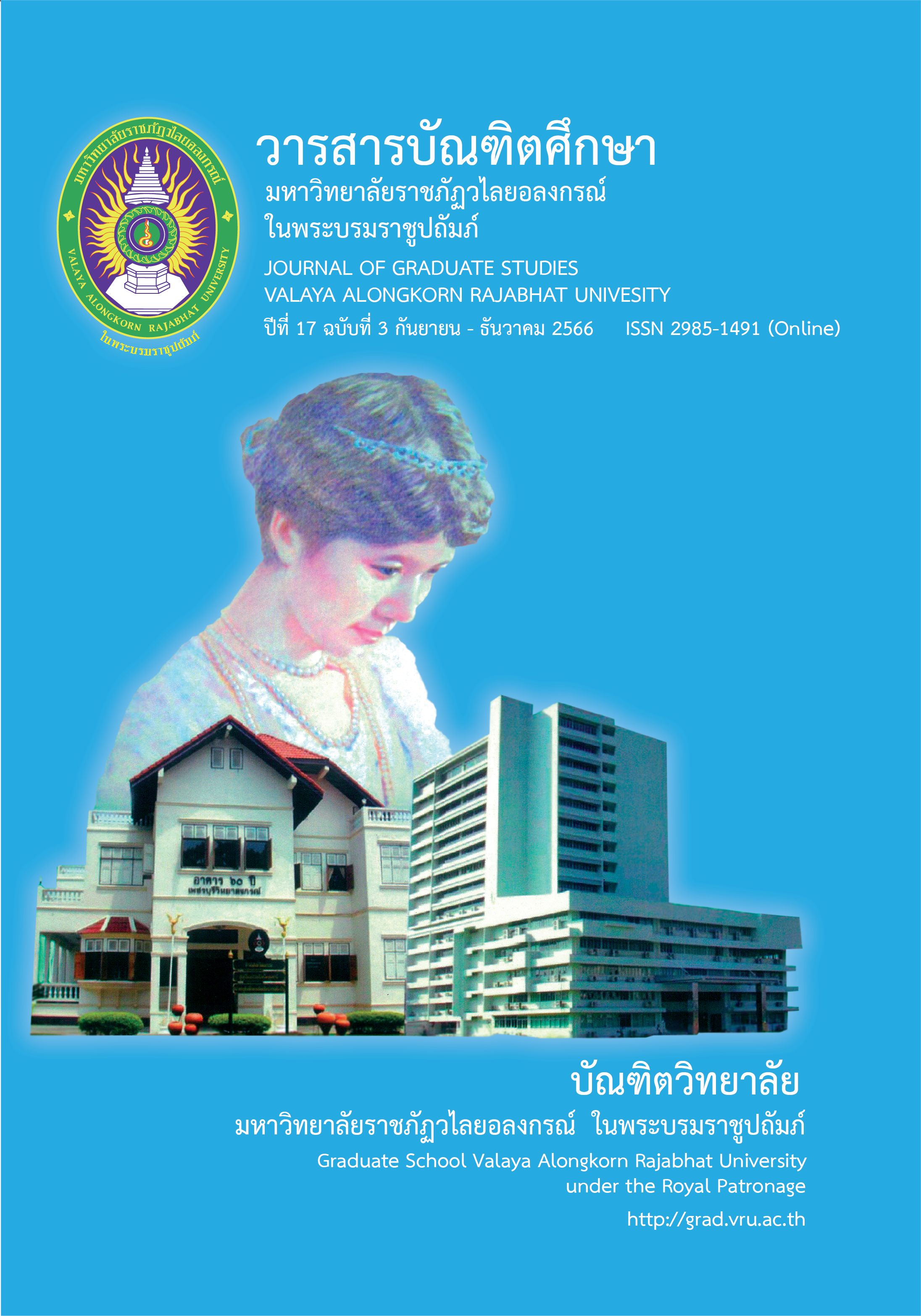TEACHERS’ VIEWS ON SCIENTIFIC LITERACY IN PRIMARY SCHOOL
Main Article Content
Abstract
The qualitative research aimed to investigate teacher’s views on scientific literacy in primary school. The participants were 7 primary teachers. Data were collected using semi-structured interview, and analyzed by content analysis. The results indicate science teachers mostly and partial views about scientific literacy. Details, they explain that scientific literacy applies scientific knowledge to solve problems in daily life by use of science process skills, but their explanations did not yet relate to social context in which students had faced. In addition, the science teachers could identify the characteristics of students who expressed their scientific literacy clearly with an emphasis on reading skills. Also, the student can express their analytical and problem-solving skills, and making a decision about something in their lives by the scientific evidence. Furthermore, the science teachers perceived that cultivating scientific literacy is essential for primary school students. It is a preparation for their students who are facing real-life problems in complex science-related societies.
Article Details

This work is licensed under a Creative Commons Attribution-NonCommercial-NoDerivatives 4.0 International License.
บทความทุกเรื่องได้รับการตรวจความถูกต้องทางวิชาการโดยผู้ทรงคุณวุฒิ ทรรศนะและข้อคิดเห็นในบทความ Journal of Global of Perspectives in Humanities and Social Sciences (J-GPHSS) มิใช่เป็นทรรศนะและความคิดของผู้จัดทำจึงมิใช่ความรับผิดชอบของบัณฑิตวิทยาลัย มหาวิทยาลัยราชภัฏวไลยอลงกรณ์ ในพระบรมราชูปถัมภ์ กองบรรณาธิการไม่สงวนสิทธิ์การคัดลอก แต่ให้อ้างอิงแหล่งที่มา
References
Burcu, Ö., Şeyma, Ş. & Abdurrahman, K. (2020). A critical view to the primary school teaching. International Journal of Contemporary Educational Research. 7(1), 54-70.
Eliyawati, Sunarya, Y. & Mudzakir, A. (2017). Solar cell as multimedia to improve students’ scientific literacy on science and nanotechnology. Journal of Science Learning. 1(1), 36-43.
Winarni, E. W., Hambali, D. and Purwandari, E. P. (2020). Analysis of language and scientific literacy skills for 4th grade elementary school students through discovery learning and ICT media. International Journal of Instruction. 13(2), 213-222.
IPST. (2018). phonkān pramœ̄n PISA sō̜ngphansippǣt nakrīan Thai wai siphāpīrūlæ tham ʻarai daibāng [PISA 2018 Results: What Thai Students (15 Years old) Know and Can Do]. Retrieved from https://pisathailand.ipst.ac.th/pisa2018-summary-result/
Jaiyeoba, A. (2011). Primary school teachers’ knowledge of primary education objectives & pupils’ development. The African Symposium. 11(1), 4-11.
Juleha, S., Nugraha, I. & Feranie, S. (2019). The effect of problem-based learning on students’ scientific and information literacy in learning human excretory system. Journal of Science Learning. 2(2), 33-41.
Khotsing, P., Erawan, P. & Siwarom, M. (2014). kānphatthanā rūpbǣp kānsō̜n witthayāsāt dōi chai panhā pen thān samrap phatthanā thaksa krabūankān khit kǣ panhā khō̜ng nakrīan chan matthayommasưksā pī thī nưng [Development of a science instruction model based on problem-based learning to enhance problem solving skills of grade seven students]. Research Methodology & Cognitive Science. 11(2), 40-52.
Kijkuakul, S. (2010). kō̜ranī sưksā kānphatthanā samatthana kānčhatkān rīanrū witthayāsāt prathom sưksā nai rōngrīan khanāt lek [New dimension in professional development for primary science teachers]. Journal of Education Naresuan University. 12(3), 175-187.
Kijrungrueng, P. et al. (2017). rūpbǣp kānsāng sœ̄m sakkayaphāp ʻāčhān nithēt læ ʻāčhān phīlīang phư̄a phatthanā khwāmsāmāt dān kān pen phīlīang wichākān samrap naksưksā fưk prasopkān wichāchīp khrū [The potential enhancement model for teacher supervisors and cooperating teachers to develop the abilities to be mentors for student teachers]. Veridian E-Journal Silpakorn University. 10(3), 104-122.
Muhammet, O. (2020). Elementary School Student’ Informal Reasoning and Its’ Quality Regarding Socio-Scientific Issue. Eurasian Journal of Educational Research. 86, 61-84.
Ngaoda, T. et al. (2022). kānphatthanā samatthana khām phisai dūai kānčhatkān rīanrū dōi chai praden thāng sangkhom thī kīaonư̄ang kap witthayāsāt [The development of transversal competencies by socio scientific issue-based instruction]. Journal of Graduate Studies Valaya Alongkorn Rajabhat University. 16(2), 258-273.
Prima, E. C., Utari, S., Chandra, D. T., Hasanah, L. & Rusdiana, D. (2018). Heat and temperature experiment designs to support students’ conception on nature of science. Journal of Technology and Science Education. 8(4), 453-472.
Saifah, Y. (2014). kān plīan phān rawāng hō̜ng rīan chan ʻanubān læ chan prathomsưksā: khantō̜n samkhan khō̜ng nakrīan chan prathomsưksā [A transition between kindergarten and elementary grade classrooms: an important step of elementary school students]. Education Journal. 42(3), 143-159.
Sangdokmai, A. and Onyon, N. (2022). kānčhatkān rīanrū bǣp sư̄pso̜ hākhwām rūrō̜wō̜ bō̜kān chai kham thām bǣp sōkhēntik thī mī phon tō̜ manōthat thāng witthayāsāt læ thaksa krabūankān thāng witthayāsāt khan būranākān khō̜ng nakrīan chan matthayommasưksā pī thī nưng nai sathān sưksā sangkat samnakngān khēt phư̄nthī kānsưksā Pathum Thānī khēt sō̜ng [Inquiry-based learning management together with using socratic questions on scientific concept and integrated science process skills of grade 10 students in pathum thani educational service area]. Journal of Graduate Studies Valaya Alongkorn Rajabhat University. 16(2), 243-257.


